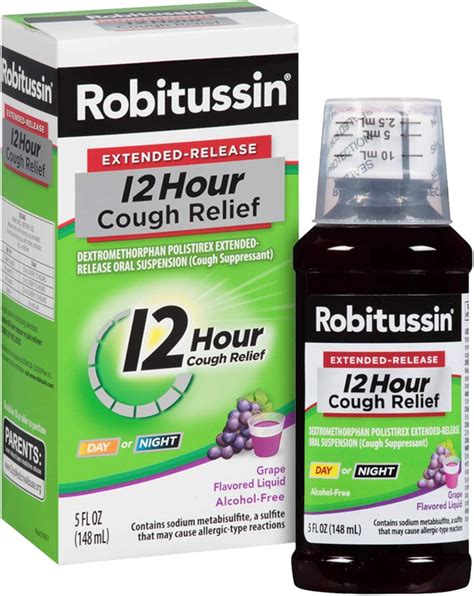Intro
Discover the best over counter cough medicines, including suppressants and expectorants, to relieve dry, wet, and persistent coughs, and learn how to choose the right OTC cough syrup or tablet for effective cough relief and symptom management.
Coughing is one of the most common symptoms of various illnesses, ranging from the common cold to more serious respiratory conditions. It is essential to find an effective way to manage coughs, especially when they disrupt daily life. Over-the-counter (OTC) cough medicines can provide relief, but with numerous options available, it can be challenging to choose the best one. Understanding the different types of coughs, the ingredients in OTC medications, and their effects on the body is crucial for selecting the most suitable remedy.
A persistent cough can be exhausting and affect not only the person suffering but also their family and friends. Coughs can be dry and unproductive or wet, producing mucus. Each type requires a different approach to treatment. Dry coughs are often caused by irritants such as dust, smoke, or viral infections, while wet coughs are typically associated with bacterial infections or conditions like bronchitis. The right OTC cough medicine can help alleviate symptoms, reduce the frequency and severity of coughing, and make it easier to rest and recover.
The market for OTC cough medicines is vast, with products ranging from traditional syrups to modern, clinically tested formulas. These medicines can contain various active ingredients, including expectorants, suppressants, and combinations thereof. Expectorants, such as guaifenesin, help thin mucus, making it easier to cough up, while suppressants, like dextromethorphan, work to reduce the cough reflex. Combination products often include additional ingredients like antihistamines or decongestants to address related symptoms such as congestion or sneezing. Understanding the role of each ingredient is vital for choosing a medicine that targets the specific needs of the individual.
Types of Over-the-Counter Cough Medicines

There are several types of OTC cough medicines, each designed to address different aspects of coughing. Cough suppressants are ideal for dry, unproductive coughs, as they help reduce the frequency and severity of coughing. Expectorants, on the other hand, are better suited for wet coughs, as they facilitate the removal of mucus. Combination products are versatile, offering relief from multiple symptoms simultaneously. It's also important to consider the form of the medicine, as options include syrups, tablets, and lozenges, each with its own advantages in terms of ease of use and effectiveness.
Expectorants and Suppressants
Expectorants work by increasing the amount of water in the airways, which helps to thin out mucus, making it easier to cough up. This is particularly useful for wet coughs. Guaifenesin is a common expectorant found in many OTC cough medicines. Suppressants, however, aim to reduce the cough reflex. Dextromethorphan is a widely used suppressant that can provide relief from dry, irritating coughs. Understanding the difference between these two types of ingredients is key to selecting the right medicine for the specific type of cough.Benefits and Working Mechanisms

The benefits of using OTC cough medicines are numerous. They can provide quick relief from coughing, reduce the risk of complications from prolonged coughing (such as exhaustion or dehydration), and improve the quality of sleep. The working mechanism of these medicines depends on their active ingredients. For example, expectorants like guaifenesin increase mucus production, facilitating its removal, while suppressants like dextromethorphan act on the brain's cough center to reduce the cough reflex. Combination products leverage multiple active ingredients to address a broader range of symptoms, including congestion, sneezing, and runny nose, in addition to coughing.
Steps for Choosing the Right OTC Cough Medicine
To choose the right OTC cough medicine, follow these steps: - Identify the type of cough: Determine if the cough is dry and unproductive or wet and productive. - Consider the symptoms: Besides coughing, are there other symptoms like congestion, sneezing, or a runny nose? - Read the label: Look for the active ingredients and ensure they match the needs identified. - Follow instructions: Always follow the dosage instructions provided with the medicine. - Consult a healthcare professional: If the cough persists or worsens, or if there are underlying health conditions, consult with a healthcare professional for advice.Practical Examples and Statistical Data

Studies and statistical data show that OTC cough medicines can be effective in managing cough symptoms. For instance, a study found that a combination product containing an expectorant and a suppressant was more effective in relieving cough symptoms in patients with acute bronchitis than a placebo. Another example is the use of honey as a natural cough suppressant, which has been shown in some studies to be as effective as OTC cough medicines in relieving cough symptoms in children. These examples highlight the importance of selecting the right type of medicine based on the specific needs and symptoms of the individual.
Key Information Related to the Topic
Key information to keep in mind when considering OTC cough medicines includes understanding the active ingredients, their roles, and potential interactions with other medications. It's also crucial to be aware of any allergies or sensitivities to ingredients in these medicines. Additionally, always check the expiration date and follow the recommended dosage to ensure safety and effectiveness.SEO Optimization and Readability

Ensuring a keyword density of 1–2% without keyword stuffing is vital for SEO optimization. Using synonyms and relevant phrases diversifies the language, making the content more readable and accessible to a wider audience. Breaking down complex ideas into bullet points or numbered lists enhances readability, as does maintaining short paragraphs. This approach not only improves the user experience but also boosts the article's visibility in search engine results.
Use of Synonyms and Relevant Phrases
Using synonyms for terms like "over-the-counter cough medicines" (such as "OTC cough remedies" or "cough syrups") and incorporating relevant phrases (like "cough relief" or "cold and flu symptoms") can enhance the article's SEO. This practice helps in creating a comprehensive and informative piece that caters to various search queries, thereby increasing its relevance and usefulness to readers.Conclusion and Call to Action

In conclusion, selecting the best over-the-counter cough medicine requires a thorough understanding of the types of coughs, the active ingredients in these medicines, and their effects on the body. By considering these factors and following the steps outlined for choosing the right medicine, individuals can find effective relief from cough symptoms. If you've found this information helpful, we invite you to share your experiences with OTC cough medicines or ask questions in the comments below. Your feedback and engagement are invaluable in creating a community that supports and informs each other about health and wellness.
Final Thoughts
Remember, while OTC cough medicines can provide relief, it's essential to consult with a healthcare professional if the cough persists, worsens, or is accompanied by other severe symptoms. This ensures that any underlying conditions are properly diagnosed and treated. By being informed and proactive about health, individuals can make the best decisions for their well-being.What are the most common active ingredients in OTC cough medicines?
+The most common active ingredients include expectorants like guaifenesin and suppressants like dextromethorphan. Combination products may also contain antihistamines, decongestants, or pain relievers.
How do I choose the right OTC cough medicine for my symptoms?
+Identify the type of cough you have (dry or wet), consider any additional symptoms (like congestion or sneezing), and read the label to ensure the active ingredients match your needs.
Are OTC cough medicines safe for children and pregnant women?
+Always consult with a healthcare professional before giving OTC cough medicines to children or taking them during pregnancy. They can provide guidance based on the individual's health status and the specific medication in question.
